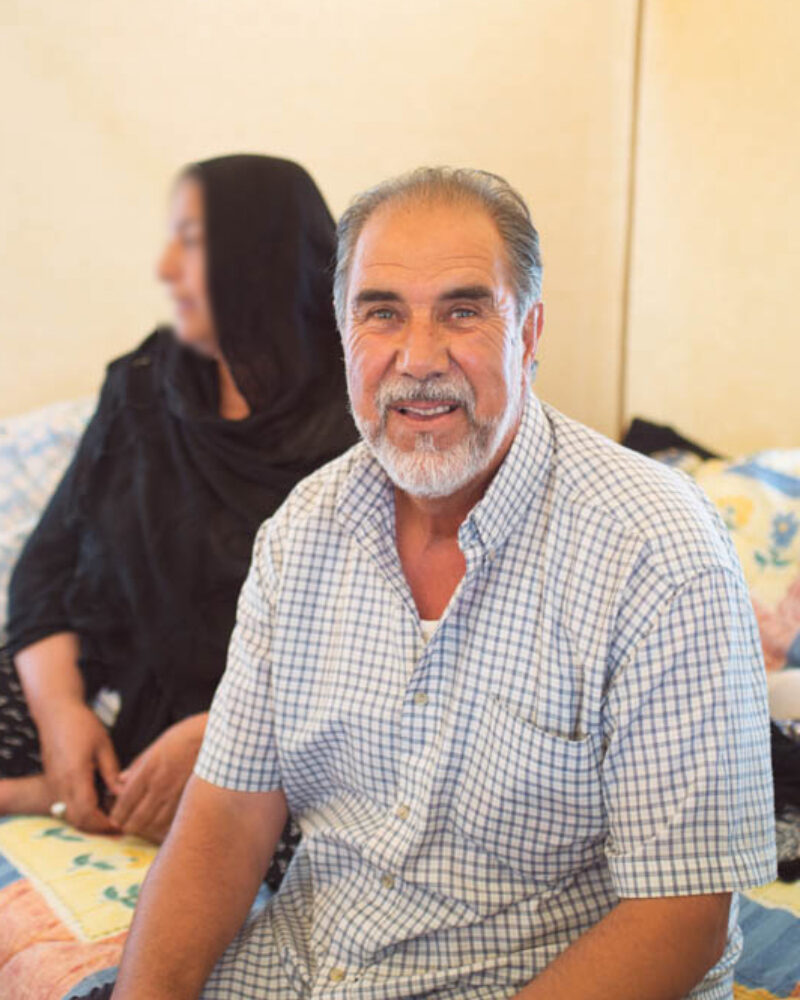A Nonsense Custom
We can’t go back. It is not safe for women there.


Editing by Twila Bird
Photography by Lindsay Silsby
My daughter is the victim of a backward and nonsense custom—that people engage their unborn children or very young children to another child. They get engaged before they even know what marriage is.
We are originally from Afghanistan, from Kabul. But in 1992, when the Mujahideen came, there was war in every village, in every alley, and in every house. Kabul was destroyed; over sixty thousand people were killed. People emigrated—some to Iran, some to Pakistan. We were among those who emigrated to Pakistan.
While we were there, living in a village in Peshawar, a child was born in our house. We named her Zahba. We had friends come from Afghanistan to Pakistan for medical treatment. They stayed with us to avoid the cost of a hotel. That was when my daughter started to be miserable. She was only one year old, and they said, “Give her to our son.” I was strictly against this! That was the start of misery and hostility.
When my daughter was in the sixth grade, we moved back to Kabul and enrolled her in a public school. These people said, “Look, she is growing up. She is ready for a suitor.” They continued to press the nonsense custom. They brought gifts and unworthy things. We said, “Our daughter is too young; it’s not the time for her marriage, and she does not want to get married because her freedom will be taken away.”
They didn’t accept this and kept putting us under pressure. We finally sent her to India, and they went to India to find her. So we brought her back and hid her in Kabul for five or six years. Finally, to escape their pressure, we left Afghanistan and came here.
We can’t go back. It is not safe for women there. They cut women’s noses and their tongues. When we were there, there wasn’t freedom; it was as if we had been chained. Our daughter knows four languages. She just wants to study and be in peace and not have to worry about these nonsense issues.
Our team members obtain informed consent from each individual before an interview takes place. Individuals dictate where their stories may be shared and what personal information they wish to keep private. In situations where the individual is at risk and/or wishes to remain anonymous, alias names are used and other identifying information is removed from interviews immediately after they are received by TSOS. We have also committed not to use refugee images or stories for fundraising purposes without explicit permission. Our top priority is to protect and honor the wishes of our interview subjects.